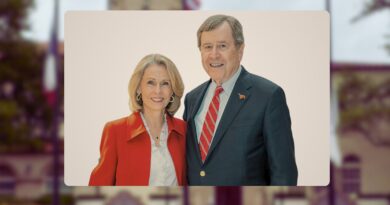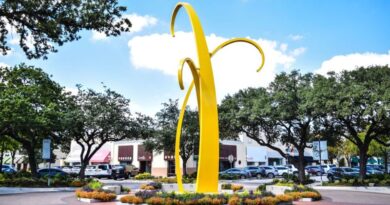U.S. Classes Can Learn From Other Countries

The children aged 4 and 5 sat quietly at their tables adding basic sums and working on writing their names.
Despite the fact that there were 30 children to the one young teacher, the preschoolers sat calmly, obediently listening to all verbal instruction. It reminded me of my own public school in the 1950s, when teachers’ complaints were about students chewing gum and not staying in straight lines.
This was a recent experience on a mission trip to a Third World Central American country to build a library and interact with the school. It is a far cry from the well-furbished learning centers in my grandchildren’s preschools with state-of-the-art equipment.
The children in Central America had longer attention spans than American children of that age and were doing work on par with American preschoolers of all socioeconomic levels, although bordering the jungle in very basic living conditions. Was this because without lifestyle distractions they could concentrate on the basics of the three R’s? Was this due to the fact that these children are not plugged into television or computers or technology?
I did not see any evidence of the problems associated with crack babies or fetal alcohol syndrome that plague our society. Lest I romanticize this indigenous culture, there is much to improve — the water, nutrition, medical care, and employment, for starters. While we are sensitive to being perceived as the rich Americans coming to patronize our less fortunate neighbors, as always we received more than we gave and learned much.
Consider the G word: God. It is taboo in our public schools and institutions with powers citing the separation of church and state. Never mind that the Constitution never intended for God to be eliminated from the public spaces but rather sought to prevent a state or national church like the Church of England in Great Britain or the Catholic Church in Spain during the European religious wars, or like Islam in much of the Middle East today.
The great universities — Harvard, Princeton, Yale, etc. — all had religious founders. In the original public schools, reading was taught using scripture. “In Adam’s fall, we sinned all” was in every primer. God is on our currency, in our national pledge, but has somehow been expunged during my lifetime in most public spaces. God equals gauche in the public domain.
Building self-esteem, however, is an oft-stated goal in our public education. In the country of Belize, where political correctness is not paramount, students, after a prayer in many public classrooms, cite this pledge every morning:
Belize is my country. I am Belize.
Belize is my family, my school, my church, and my community. I am the hope of Belize.
I am the hope of my parents, and my teachers, the hope of today and tomorrow.
I live and learn not only for myself, but for my sisters and brothers.
I am the hope of Belize.
I promise to serve Belize as faithfully as I can.
Now substitute the word America and imagine that being recited in every classroom daily in this country. Substitute higher power or religion for church if need be or even leave it out, but the concept of service while implicitly building self-esteem by identifying a child as being a nation’s hope is profound.
Would that make a difference in our schools? In the slogan of those locals: You Betta Belize It!








